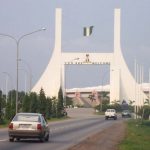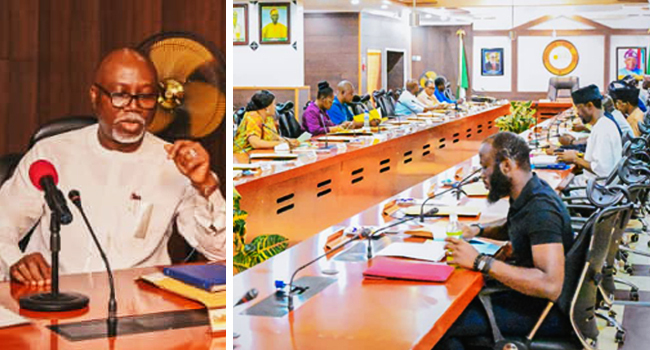30 days after assuming office, President Bola Tinubu’s economic policies and reforms have attracted both praise and criticism from home and abroad. However, the most vulnerable Nigerians only hear hardship as Renewed Hope risks morphing into despair, STEPHEN ANGBULU writes
If momentum and speed were the only markers of a successful administration, Nigerians would score President Bola Tinubu incredibly high in performance in his first 30 days in office.
The discontinuance of petrol subsidy and the unified exchange rate have attracted the praise of many multilateral organisations, foreign investors and Nigerians comfortable enough to bear the combined consequences of these policies.
For most citizens, however, the past 30+ days have been a via dolorosa, even as the promised palliatives meant to cushion the aftershocks remain yet elusive.
On inauguration day, the President shocked the petroleum market when he uttered, “Subsidy is gone!” Though not in the original text of his maiden speech, those words rang throughout the nation, with a cascading scarcity in petrol even as pump price tripled from N195 to N600 in hours.
The next day, the Nigeria National Petroleum Corporation Limited published its updated pricing template, ending doubts that the high prices were here to stay.
In a statement issued on May 31, and signed by its Chief Corporate Communications Officer, Garba Deen Muhammad, the national oil company explained that the adjusted pump price aligned with “current market realities.”
That reality also includes a 100 per cent or more hike in transport fares. At the same time, long queues resurfaced at fuel stations across Lagos, Abuja, Ilorin, Benin, Asaba, Port Harcourt, Kano, Makurdi and other major cities and urban areas in the country.
Unlike in 2012, when the Goodluck Jonathan administration tried to remove the petrol subsidy without success, stakeholders in the oil and gas sector as well as the organised labour, agreed that the subsidy had to go.
However, critics faulted the timing. They argued that the N3.6bn allocated for petrol subsidy in the 2023 budget covered was sufficient until June end, but the new administration insisted on discontinuing it immediately.
For the Nigeria Labour Congress, Tinubu’s decision bypassed consultations with critical stakeholders. The NLC President, Joe Ajaero, had also said the administration did not make adequate plans for palliatives before pulling the plug.
As labour unions and millions of vulnerable Nigerians wailed, international development partners and investors hailed the decision. They argued that not only did the subsidy primarily benefit the rich, but its long-term implication for the economy was also dire.
The World Bank Nigeria Public Finance Review Report released last November read, “For years, a large share of Nigeria’s resources has financed inefficient and regressive subsidies for petrol, electricity, and foreign exchange.
“Not all these subsidies are accounted for in the budget, which makes them difficult to track and scrutinise.
“However, available data suggest that these subsidies, which accounted for more than the amount spent on education, health, and social protection in 2021, benefit primarily wealthy households.”
Therefore, its Nigeria Development Update, issued on June 27, urged the F.G. to look beyond petroleum and end all forms of subsidies enjoyed by Nigerians to prevent a fiscal implosion. The bank noted that the bottom 40 per cent of Nigerians received less than three per cent of subsidies directly while “the top 60 per cent received over 23 per cent.”
With the petrol subsidy gone, the early benefits appear to trickle in. Since May 31, the FG has saved about N400bn, oil marketers stated on Thursday, June 29.
However, the World Bank has stated that about 7.1 million Nigerians would become poor if the FG failed to compensate or provide palliatives for them following the removal of the fuel subsidy.
It said 89.8 million Nigerians were poor as of the beginning of 2023, while four million more became poor between January and May, raising the figure to 93.8 million.
As more citizens sink into multidimensional poverty, the F.G. and Organised Labour are yet to finalise the various scopes of intervention. At the last meeting between both parties at the Presidential Villa on June 19, the F.G. said it had set up a steering committee to consider the various demands of the Organised Labour to produce a workable framework in eight weeks, that is, by August 14.
Mouth-watering Palliatives Proposed
The N200,000 new minimum wage, the Compressed Natural Gas-run transport buses and the cash transfers to vulnerable households are among discussions on the table until August 14.
Dr Olalekan Aworinde is a Senior Lecturer in the Department of Economics, School of Management and Social Sciences, Pan-Atlantic University.
He says the reduced purchasing power of many Nigerians would lower their standard of living.
“It will have temporary, short-term and long-term effects. The temporary effect is what we are seeing now. This is to tell you that the level of inflation has risen despite all the measures by the CBN to control it,” he said.
Unified Exchange Rate
On June 14, the Central Bank of Nigeria collapsed the existing exchange rates pulling the plug on the prevailing subsidised Investors’ and Exporters’ window.
The Apex Bank directed Deposit Money Banks to remove the rate cap on the naira at the Investor’s and Exporters’ Window of the foreign exchange market. This allowed for the free-floating of the national currency against the dollar and other global currencies.
Consequently, the official exchange rate rose by over 60 per cent, purging the arbitrage believed to have sponsored ill-market practices, amongst others. The naira fell from 471/dollar to 664.04/dollar and closed the week later at N663.04/dollar.
According to the International Trade Centre, value of Nigeria’s total export in 2022 was $63.34 billion. At N448.55/dollar (the central price of the dollar as of December 30, 2022, on the CBN’s website), its naira equivalent was N28.41 trillion. Now, its naira equivalent would translate to at least N41.99 trillion. If the country exports the same quantity it did in 2022, it will earn about N41.99 trillion. With the government’s plan to ramp up oil production, a significant component of the country’s export, Nigeria’s export value is expected to increase.
The unified exchange rate has received widespread acclaim from the British, US and South Korean governments as well as other multilateral finance institutions, who say it spells an upward path for Nigeria’s economy.
However, there are interim consequences.
In its June 2023 Nigeria Development Update, the World Bank projected that inflation may hit 25 per cent in 2023 as a result of petrol subsidy removal.
The report read, “The removal of the petrol subsidy is anticipated to cause a temporary increase in inflation in the upcoming months before contributing to disinflation in the medium term.
“The price increases resulting from the subsidy removal will have a one-time impact on prices, primarily affecting petrol purchases for transportation, power generation, and certain services.”
Already, the devaluation of the naira has led to a substantial increase in airfares, negatively affecting the summer holiday arrangements of several travellers, The PUNCH reported.
Airfares on international routes from Nigeria to the United States, Europe and the Middle East have soared considerably due to the naira depreciation triggered by the cancellation of the parallel forex market.
The new President leaves no room for doubts in choosing those who will drive his Renewed Hope Agenda.
Speaking to a group of Nigerians in Paris, France, on June 24, President Tinubu said the financial system he met was “rotten” under the erstwhile CBN Governor, Godwin Emefiele.
Two weeks earlier, he had suspended Emefiele sequel to an ongoing investigation of his office and the planned reforms in the economy’s financial sector. He also appointed Folashodun Shonubi to act pending the outcome of the investigation.
Although Emefiele’s tenure saw the lowering of the non-performing loans of Nigerian banks from 30 to below five per cent, analysts agree that he performed woefully on several dimensions. The inflation rate rose to over 24 per cent. The naira lost over 70 per cent of its value in the past nine years and the effective commercial interest rate now surpasses 30 per cent.
More so, he oversaw the controversial naira redesign programme, which the Centre for the Promotion of Private Enterprise said cost the economy about N20 trillion in Q1 2023. In its Q1 report, released on July 2, the CPPE also revealed that Nigeria’s economic growth reduced to 2.3 per cent in the same period compared to 3.1 per cent in the last quarter.
On June 14, Tinubu suspended the chairman of the Economic and Financial Commission, Abdulrasheed Bawa, over “Weighty allegations of abuse of office levelled against him.” The suspension was to allow for a proper investigation into his conduct while in office.
As the investigations near one month, renowned lawyer, Femi Falana, has urged the Department of State Services to speed up investigations into both cases.
The President named eight persons as special advisers. They include Nuhu Ribadu as National Security Adviser; Wale Edun as Special Adviser on Monetary Policies; Olu Verheijen as S.A. on Energy, and Zacchaeus Adedeji as S.A. on Revenue.
Others are John Uwajumogu as S.A. Industry, Trade and Investment and Salma Anas as S.A. Health.
He also appointed Hadiza Bala Usman as S.A. on Policy Coordination; Hannatu Musawa as S.A., Culture and Entertainment Economy, Senator Abdullahi Gumel as Senior Special Assistant on National Assembly Matters and Olarewaju Ibrahim as SSA on National Assembly Matters (House of Representatives).
Days earlier, he had appointed the former Speaker of the House of Representatives, Femi Gbajabiamila, as Chief of Staff, and former Benue State governor, George Akume, as Secretary to the Government of the Federation. The President also appointed new helmsmen in the military.
As the administration enters its second month, Nigerians expect President Tinubu to make his most anticipated appointments yet; the ministers in his cabinet. Before then, however, political analysts have urged the President to be guided by character, competence and knowledge.
Jide Ojo is an Abuja-based Public Affairs Analyst and Executive Director at OJA Development Consult. He said the next set of cabinet members must emerge by virtue of their character, competence and knowledge.
On his part, Auwal Rafsanjani, who is the Executive Director of the Civil Society Legislative Advocacy Centre, advised the President to “avoid people who have been accused of diversion of public funds, a record of human rights abuses and/or mismanagement of governance in their respective states, particularly the governors.”
Punch








